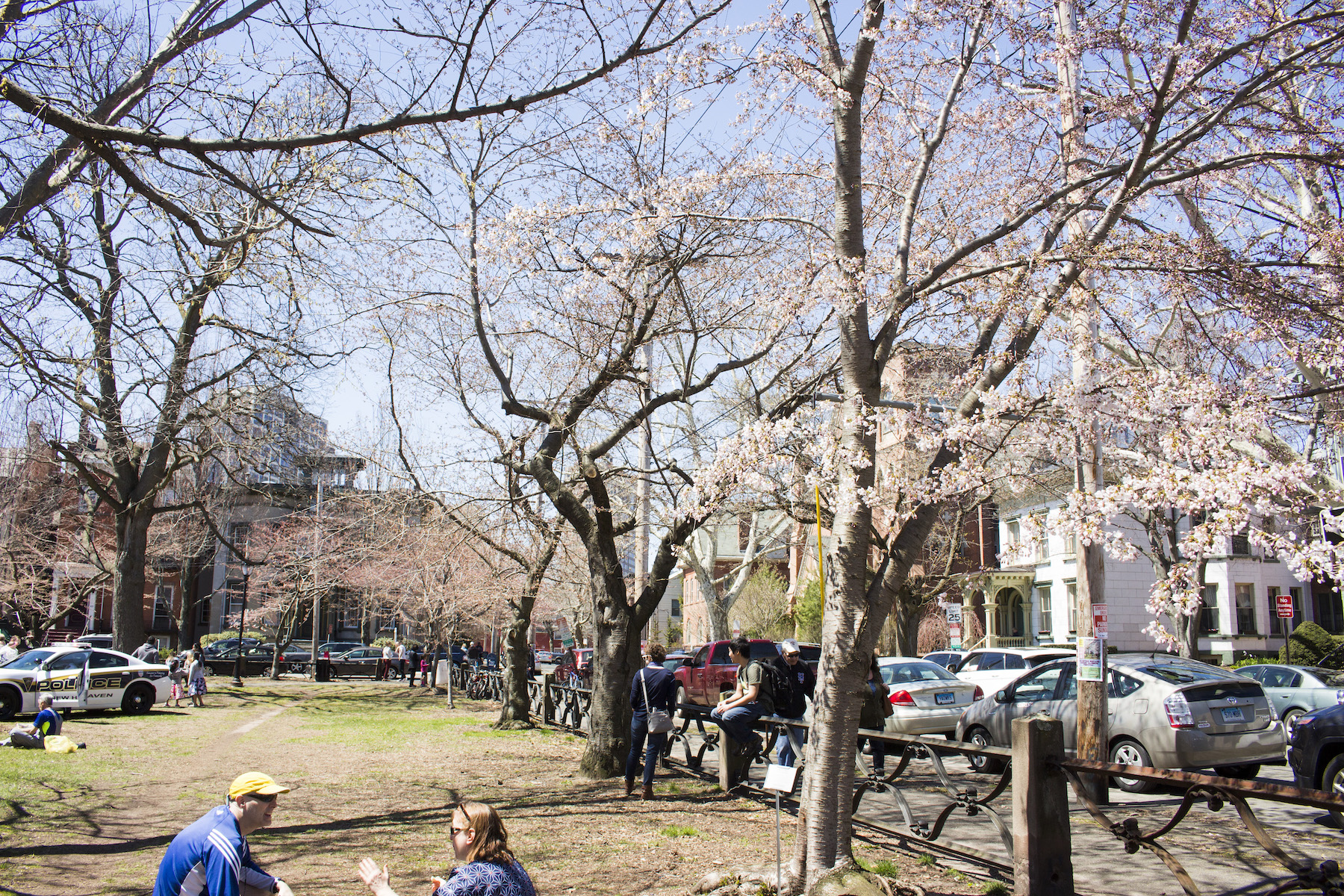
Raymond Gao
Under newly inaugurated Gov. Ned Lamont SOM ’80, Connecticut’s legislative agenda has pivoted to address several hot-button issues. On Thursday, Elm City residents gathered to informally discuss and relay their thoughts to their elected representatives in the state’s legislature.
Approximately 15 residents of New Haven and surrounding areas gathered at Fussy Coffee in Newhallville on Thursday evening for a conversation with state Reps. Robyn Porter, D-Hamden, and Roland Lemar, D-East Haven. The representatives discussed their work legislating and funding bills on various issues, including education and transportation. Both Porter and Lemar are longtime members of the New Haven delegation to the Connecticut General Assembly, and, as chairs of the labor and transportation committees, respectively, they offered explanations for their legislative initiatives and listened to recommendations from the crowd.
“We are here to hear from you guys about your concerns,” Porter told attendees, who gathered around a large communal table. “[My current legislative priorities] are reflective of my committee assignments.”
Members of New Haven’s delegation to the Connecticut General Assembly hold informal chats with constituents about 2–3 times a month. Although Lemar and Porter do not always co-host such events, they do represent bordering districts. Fussy Coffee is located in Porter’s district, which also contains parts of neighboring Hamden.
Lemar, Porter and members of the public shared similar frustrations and concerns about the state’s financial woes and expressed fear regarding a lack of funding for initiatives. The Nutmeg State’s economy has yet to recover fully from the Great Recession. Despite rising costs, the state has struggled with limited revenue, and a shaky fiscal situation has led to tighter budgets and increasing debt.
Since taking office, Lamont has kept to his election promise to clean up the state’s fiscal situation. In January, he introduced a “debt diet” aimed at decreasing unsustainable borrowing. Despite indicators that the state’s economic situation is on the rise, his first proposed two-year budget — unveiled in February and now in the hands of the legislature — reflected fiscal restraint. He kept aid to major municipalities like New Haven relatively flat and decreased total state aid.
Connecticut lacks major revenue sources, and in recent years, the state has seen spending cuts across the board. On Thursday, both Lemar and Porter clarified that a lack of dependable revenue cut at the heart of many legislative issues, including education.
The majority of state aid to municipalities comes in the form of funds earmarked for education. Under Lamont’s proposal, funding for the next two years will remain relatively consistent, but far below the levels requested by New Haven Public Schools Superintendent Carol Birks. With the state’s urban areas struggling with their own fiscal woes, state aid forms a critical part of a city’s revenue stream.
Many attendees at the meeting expressed frustration over the cuts that the Elm City’s school system has faced. New Haven Public Schools have struggled financially — the system regularly overspends its budget and is still under significant pressure. Birks asked, at one point, for a $30 million increase in total funding for the upcoming fiscal year. Mayor Toni Harp’s proposed budget, which takes into account funding offered by the state, proposed a modest $750,000 bump instead.
Sylvester Salcedo — a local parent and president of the John C. Daniels School Parent-Teacher Organization — lamented that, among other things, the school library is “dark three days a week” because the system has cut funding for librarians.
Lemar, who serves as a member of the House education and finance committees, explained that though New Haven, Hartford and Bridgeport — the state’s three largest cities — receive 30 percent of total state education aid, the numbers still fall short of ideal operating targets. More money for areas of need — mainly urban districts — is limited by a scarcity of total funds and considerable “suburban pushback,” Lemar said.
In Lamont’s proposed budget, a particularly controversial measure was tolling on state highways to raise money for transportation infrastructure improvements.
Lemar said Connecticut’s residents have long seen crumbling infrastructure, and Hartford has acknowledged “D+” to “C-” grades on local roads. Lemar explained that Connecticut joining its neighbors along the Eastern Seaboard in tolling would raise money and place some of the burden on out-of-state residents using the state’s roads.
Although residents in attendance expressed varying views on tolling, both Porter and Lemar stressed that the plan — applicable to major highways only — was a necessary evil that would provide a dependable source of much-needed revenue, which would be used solely for the purpose of transportation infrastructure improvements.
“I don’t like tolls,” Lemar said. “But it is the only way for us to get outside residents paying for some of our infrastructure costs.”
This toll is critical, Lemar continued, in light of Connecticut’s relatively low 25-cent gas tax — a figure that has not changed in 16 years and for which an increase would hit in-state residents hardest.
Both Lemar and Porter underscored that the discussion and current bills are mere starting points. The budget debates will continue in the upcoming months.
Fussy Coffee is located at 290 Winchester Ave.
Angela Xiao | angela.xiao@yale.edu
Mackenzie Hawkins | mackenzie.hawkins@yale.edu







